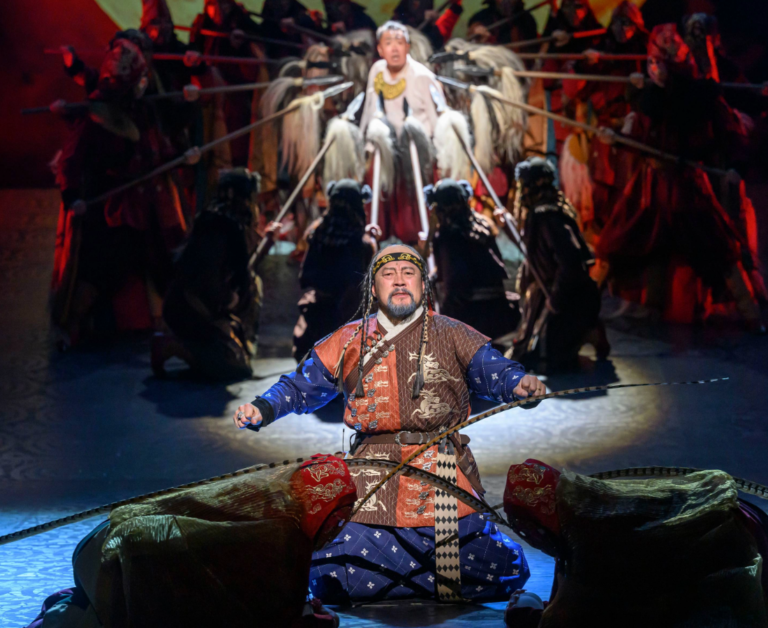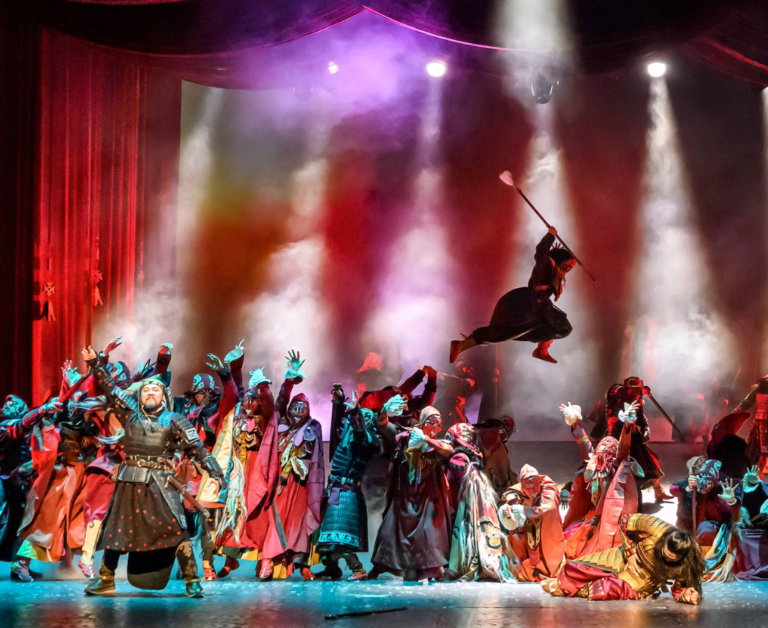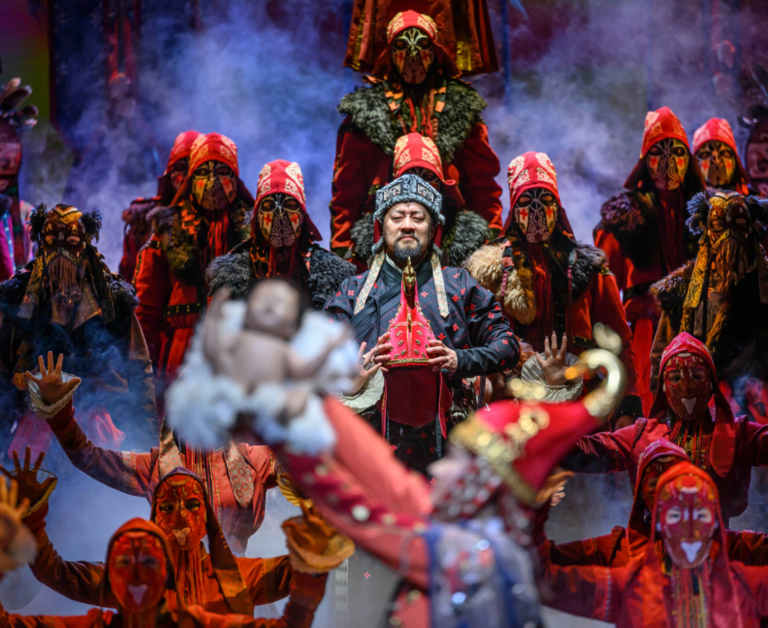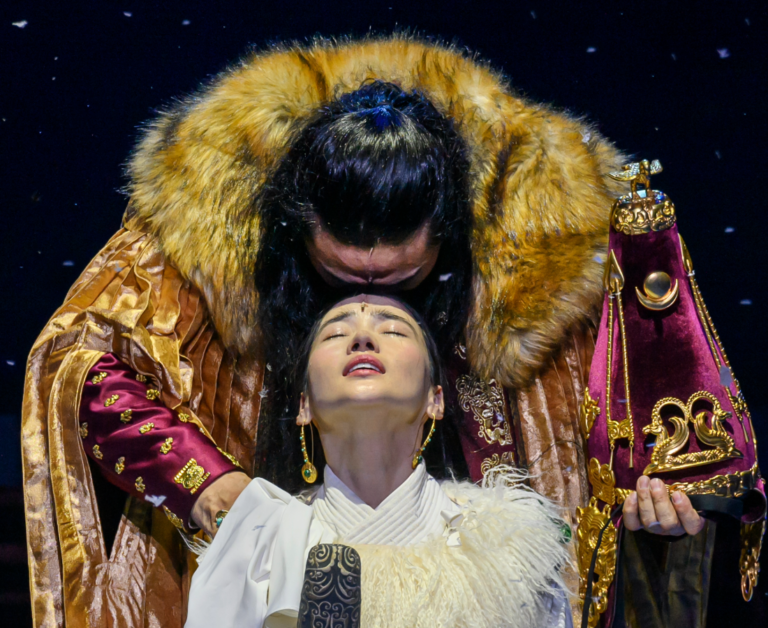Published date
Written by
While the story may follow the familiar tropes of conspiracy, love, and revenge seen in many tales of great empires, what sets The Mongol Khan apart is how it is told.
Set against the vibrant backdrop of the Hunnic Empire, this fictional tale unfolds in ancient Mongolia, drawing inspiration from real-life historical events and archaeological discoveries.
Through the stunning nomadic dance choreography and evocative Hun cultural music, we were transported into the world of the fictional ruler Archug Khan. Alongside his trusted advisor Egereg and two queens, the moving performance navigates the complexities between trust and betrayal, love and sacrifice in impactful ways.
The Mongol Khan is a gripping sound and visual spectacle that kept us on the edge of our seats — even when we didn't understand the language. Although we watched the performance in Mongolian, English-language performances are also available.
The story

Adapted from the three-act tragedy by acclaimed Mongolian author, Lkhagvasuren Bavuu, The Mongol Khan sees Archug Khan's legacy entangled in a story of betrayal, mistaken identity, and sacrifice.
A celebration kicks off the performance, with the two queens, Tsetser and Gerel, bearing sons in quick succession. However, doubt surrounds the legitimacy of Tsetser's child, Prince Achir, due to her strained relationship with Archug Khan and her secret affair with Egereg.
As suspicions grow, Archug Khan crowns Queen Gerel's son, Prince Khuchir, as his rightful successor. The jealous Egereg conspires to switch the infants, setting in motion a tragic sequence of events that forces Archug Khan to choose between the fate of his family and the peace of the Hunnu Empire.
The production

The Mongol Khan marks the debut of a Mongolian theatrical production in Singapore. This large-scale production is performed by an ensemble of over 70 actors, dancers, and musicians, including Hollywood actors like Ron Yuan, Mark Dacascos and Leonard Wu for the English performances.
The Mongolian cast is led by award-winning Mongolian actors like Erdenebileg Ganbold as Archug Khan, Bold-Erdene Sugar as the advisor, Uranchimeg Urtnasan as Queen Tsetser, and Dulguun Odkhuu as Queen Gerel.
Even before the curtain rises, the intricate details of the stage set catch our eyes. Cultural motifs and creatures frame the stage, and with the vibrant music and dance celebration at the opening scene, we are immediately transported into the heart of Mongolian culture. The stage then seamlessly shifts from festive grounds to a place of secret trysts and battlefields.

Besides the stage set, the lavish costumes and intricate masks bring the story to life, transforming characters into vivid representations of their roles.
Every costume, from the main characters to the dancers, is meticulously designed as a reflection of Mongolian culture while highlighting the characters' emotional states. As the scenes unfold, the costumes evolve from the vibrant colours in the opening to plain, single-coloured tones conveying despair.
Ornate patterns can be seen on characters such as the Shaman and the fox spirits, while dramatic masks enhance the narrative of scenes. I felt a slight unease seeing the masks up close on stage, foreshadowing the rising tension and conflict to come.
The performance

Although we don't understand a word of Mongolian, the actors' powerful performances and expressive gestures more than convey the essence of the story. The clever use of dramatic actions, dance, and fluid movements vividly illustrates the inner passions and turmoils of the main characters without us relying on dialogue to understand.
The emotional depth of their portrayals resonated deeply, connecting us to their struggles and emotions. But fret not, English subtitles are displayed at the top and sides of the stage and we love the poetic touch to the translations, which complements the artistry of the performance.
The Mongol Khan runs until Nov 3, 2024 at Sands Theatre, Marina Bay Sands located at 10 Bayfront Ave, Singapore 018956. Tickets are priced from S$48, with performances in English or Mongolian.
[[nid:706832]]
